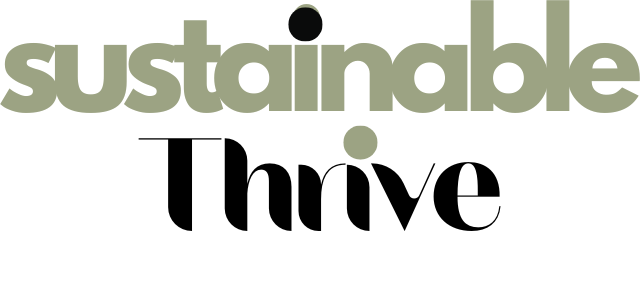Lingerie is one of the most intimate and personal items in our wardrobe. It can make us feel confident, sexy, comfortable, and happy. But have you ever wondered how your lingerie choices affect the planet and the people who make them?
The conventional lingerie industry is not very eco-friendly or ethical. It relies on synthetic fabrics that are derived from fossil fuels, use toxic chemicals and dyes, and consume a lot of water and energy. It also exploits workers in sweatshops, exposes them to health hazards, and pays them low wages. And it contributes to the massive problem of textile waste, as many lingerie items are discarded after a few wears.
But there is a better way to shop for lingerie: choosing sustainable and ethical brands that care about the environment, the workers, and the animals. These brands use organic, recycled, or natural materials that are gentle on your skin and the planet. They also adopt fair trade practices, pay living wages, and ensure safe and dignified working conditions. And they design durable and timeless pieces that you can cherish for a long time.
In this ultimate guide, we will show you why sustainable and ethical lingerie is important, what are the best materials to look for, and how to find the brands that match your values and style. We will also introduce you to some of our favorite sustainable and ethical lingerie brands that offer a variety of products, from bras and panties to bodysuits and nightwear.
Whether you are looking for something simple and cozy, or something fancy and flirty, you can find it in a sustainable and ethical way. Let’s dive in!
What is Ethical and Sustainable Lingerie?

Sustainable and ethical lingerie is lingerie that is made with respect for the environment, the workers, and the animals. It aims to minimize the negative impacts of the lingerie industry and maximize the positive ones.
Sustainable lingerie refers to lingerie that is made with eco-friendly materials and processes. It reduces the use of natural resources, the emission of greenhouse gases, the generation of waste, and the pollution of water and soil. It also preserves the biodiversity and the health of the ecosystems.
Ethical lingerie refers to lingerie that is made with fair and humane practices. It ensures that the workers who make the lingerie are treated with dignity and paid fairly. It also protects the rights and the welfare of the animals that are involved in the production.
Sustainable and ethical lingerie can overlap, as some brands follow both principles. However, not all sustainable lingerie is ethical, and not all ethical lingerie is sustainable. For example, some brands may use organic cotton, which is a sustainable material, but exploit their workers in sweatshops, which is unethical. Conversely, some brands may pay their workers well, which is ethical, but use polyester, which is an unsustainable material.
Therefore, it is important to look at both aspects when choosing sustainable and ethical lingerie. You can do this by checking the labels, the certifications, the websites, and the reviews of the brands you are interested in. You can also use online tools and apps that rate the sustainability and ethics of different brands, such as Good On You, Eco-Stylist, and Rank a Brand.
Why Choose Sustainable and Ethical Lingerie?
Choosing sustainable and ethical lingerie has many benefits, not only for the planet and the people, but also for yourself. Here are some of the main reasons why you should opt for sustainable and ethical lingerie:
Reduce Your Environmental Footprint
By choosing sustainable lingerie, you can help save water, energy, and land, and prevent greenhouse gas emissions, waste, and pollution. For example, according to the World Wildlife Fund, one kilogram of cotton used to produce a pair of jeans can consume 7,500 to 10,000 liters of water, which is the amount a person would drink over 10 years. By choosing organic cotton, which uses less water and no pesticides, you can save a lot of water and protect the soil. Similarly, by choosing recycled materials, such as recycled polyester or nylon, you can reduce the demand for virgin materials and prevent plastic waste from ending up in landfills or oceans.
Support Fair and Ethical Trade.
By choosing ethical lingerie, you can ensure that the workers who make your lingerie are paid fairly and treated well. You can also avoid supporting brands that exploit workers, violate human rights, and use child labor. For example, according to the Clean Clothes Campaign, the global garment industry employs about 60 million workers, most of whom are women in developing countries. These workers often face long hours, low wages, unsafe conditions, harassment, and abuse. By choosing ethical lingerie, you can support brands that respect labor standards, provide decent working conditions, and empower workers.
Protect Animal Welfare
By choosing ethical lingerie, you can also avoid supporting brands that harm animals, use animal-derived materials, or test on animals. For example, according to PETA, many animals, such as sheep, cows, and silkworms, are exploited, abused, and killed for their wool, leather, and silk. By choosing ethical lingerie, you can support brands that use cruelty-free and vegan materials, such as organic cotton, hemp, bamboo, or lyocell.
Improve Your Health and Comfort
By choosing sustainable and ethical lingerie, you can also benefit your own health and comfort. Sustainable and ethical materials are often softer, more breathable, and more gentle on your skin than synthetic materials. They also reduce the risk of allergies, irritations, and infections, as they contain fewer chemicals and toxins. For example, according to the Organic Trade Association, conventional cotton is one of the most pesticide-intensive crops in the world, and these pesticides can remain in the fabric and cause skin reactions. By choosing organic cotton, you can avoid these harmful substances and enjoy a more comfortable and healthy underwear.
Express Your Style and Values
By choosing sustainable and ethical lingerie, you can also show your personal style and values. Sustainable and ethical lingerie is not boring or bland, as some people may think. It comes in a variety of colors, styles, and sizes, to suit your preferences and needs. You can find anything from simple and cozy, to sexy and flirty, to elegant and sophisticated. You can also find lingerie that reflects your values and beliefs, such as feminism, body positivity, or veganism. By choosing sustainable and ethical lingerie, you can wear something that makes you feel good, inside and out.
What are the Best Materials for Sustainable and Ethical Lingerie?
When it comes to sustainable and ethical lingerie, the materials matter a lot. The materials determine the environmental and social impacts of the lingerie, as well as the quality and comfort. Here are some of the best materials to look for when shopping for sustainable and ethical lingerie:
Organic Cotton
Cotton is one of the most popular and versatile materials for lingerie, as it is soft, breathable, and durable. However, conventional cotton is also one of the most environmentally and socially damaging materials, as it uses a lot of water, pesticides, and fertilizers, and often exploits workers and farmers. Organic cotton, on the other hand, is grown without synthetic chemicals and with less water, and often follows fair trade standards. Organic cotton is certified by organizations such as the Global Organic Textile Standard (GOTS), the Organic Content Standard (OCS), or the Soil Association.
Recycled Polyester or Nylon
Polyester and nylon are synthetic materials that are derived from petroleum, a non-renewable and polluting resource. They are also not biodegradable and shed microplastics that contaminate the water and the soil. Recycled polyester or nylon, however, are made from recycled plastic bottles, fishing nets, or textile scraps, which reduces the need for virgin materials and prevents waste. Recycled polyester or nylon are certified by organizations such as the Global Recycled Standard (GRS), the Recycled Claim Standard (RCS), or the Econyl® Regeneration System.
Hemp
Hemp is a natural material that is made from the fibers of the hemp plant, a fast-growing and low-maintenance crop. Hemp is one of the most sustainable and eco-friendly materials, as it requires little water, no pesticides, and enriches the soil. Hemp is also strong, durable, and breathable, and has antibacterial and anti-fungal properties. Hemp is certified by organizations such as the European Industrial Hemp Association (EIHA), the Hemp Industries Association (HIA), or the Hemp Foundation.
Bamboo
Bamboo is a natural material that is made from the pulp of the bamboo plant, a renewable and abundant resource. Bamboo is also biodegradable and has antibacterial and moisture-wicking properties. However, bamboo is not always sustainable, as some bamboo plantations may cause deforestation, soil erosion, and biodiversity loss. Bamboo also requires a lot of chemicals and energy to turn it into fabric, which can pollute the environment. Therefore, it is important to look for bamboo that is certified by organizations such as the Organic Bamboo Standard (OBS), the Forest Stewardship Council (FSC), or the OEKO-TEX Standard 100.
Lyocell
Lyocell is a semi-synthetic material that is made from wood pulp, usually from eucalyptus, beech, or pine trees. Lyocell is more sustainable than other wood-based materials, such as rayon or viscose, as it uses less water, energy, and chemicals and has a closed-loop production process that recycles the solvents. Lyocell is also soft, smooth, and breathable and has anti-bacterial and moisture-absorbing properties. Lyocell is certified by organizations such as the Forest Stewardship Council (FSC), the OEKO-TEX Standard 100, or the TENCEL™ brand.
Organic Silk
Silk is a natural material that is made from the cocoons of silkworms, a type of insect. Silk is luxurious, smooth, and breathable and has thermoregulating and hypoallergenic properties. However, conventional silk is not very ethical, as it involves boiling or gassing the silkworms alive to obtain the cocoons. Organic silk, on the other hand, is made from cocoons that are collected after the silkworms have emerged, which spares their lives. Organic silk is certified by organizations such as the Global Organic Textile Standard (GOTS), the Organic Content Standard (OCS), or the Peace Silk label.
What are Some of the Best Sustainable and Ethical Lingerie Brands?
Now that you know what sustainable and ethical lingerie is, why you should choose it, what are the best materials for it, and how to find it, you may be wondering what are some of the best sustainable and ethical lingerie brands out there. To help you with that, we have compiled a list of some of our favorite brands that offer a variety of products, from bras and panties to bodysuits and nightwear. These brands are not only sustainable and ethical, but also stylish, comfortable, and affordable. Here they are:
1. WAMA Underwear
WAMA Underwear is a brand that specializes in hemp underwear for men and women. Hemp is one of the most sustainable and eco-friendly materials, as it requires little water, no pesticides, and enriches the soil. Hemp is also strong, durable, and breathable, and has antibacterial and anti-fungal properties. WAMA Underwear uses organic hemp that is blended with organic cotton and spandex, to create soft and stretchy underwear that is gentle on your skin and the planet. WAMA Underwear is also ethical, as it follows fair trade practices, pays living wages, and ensures safe and dignified working conditions. WAMA Underwear is certified by organizations such as the Global Organic Textile Standard (GOTS), the Fair Wear Foundation, and PETA.
- Materials: Organic hemp, organic cotton, spandex
- Price: $15-$20 per pair
- Pros: Sustainable, ethical, comfortable, breathable, antibacterial
- Cons: Limited styles and colors, may run small
2. Organic Basics
Organic Basics is a brand that offers everyday essentials, such as underwear, socks, t-shirts, and activewear, for men and women. Organic Basics uses organic, recycled, or natural materials, such as organic cotton, recycled nylon, or TENCEL™ lyocell, to create high-quality and long-lasting products that are soft, smooth, and breathable. Organic Basics also uses innovative technologies, such as SilverTech™ and Polygiene®, to make their products more durable, odor-resistant, and antibacterial. Organic Basics is also ethical, as it works with certified factories that follow strict social and environmental standards, such as the Global Organic Textile Standard (GOTS), the Global Recycled Standard (GRS), or the OEKO-TEX Standard 100.
- Materials: Organic cotton, recycled nylon, TENCEL™ lyocell, spandex, elastane
- Price: $25-$75 per piece
- Pros: Sustainable, ethical, high-quality, durable, odor-resistant
- Cons: Expensive, may have limited stock
3. Azura Bay
Azura Bay is a brand that curates a collection of sustainable and ethical lingerie, swimwear, and loungewear from various brands, such as WAMA Underwear, Organic Basics, Boody, and more. Azura Bay selects brands that use eco-friendly and organic materials, such as hemp, cotton, bamboo, or lyocell, and that follow fair trade and ethical practices, such as paying living wages, ensuring safe working conditions, and supporting women’s empowerment. Azura Bay also donates a portion of their profits to various causes, such as environmental conservation, animal welfare, and women’s health.
- Materials: Hemp, cotton, bamboo, lyocell, nylon, spandex, elastane, etc.
- Price: $15-$100 per piece
- Pros: Sustainable, ethical, diverse, charitable, free shipping and returns
- Cons: May have inconsistent sizing, quality, and availability
4. Knickey (Rebranded to Subset)
Knickey is a brand that focuses on organic cotton underwear for women. Cotton is one of the most comfortable and versatile materials for underwear, as it is soft, breathable, and durable. However, conventional cotton is also one of the most harmful materials for the environment and the people, as it uses a lot of water, pesticides, and fertilizers, and often exploits workers and farmers. Knickey uses organic cotton that is grown without synthetic chemicals and with less water, and that follows fair trade standards. Knickey also offers a recycling program, where you can send back your old underwear and get a free pair of new ones.
- Materials: Organic cotton, spandex
- Price: $13 per pair
- Pros: Sustainable, ethical, comfortable, breathable, recyclable
- Cons: Limited styles and colors, may have long wait times
5. Naja
Naja is a brand that offers lingerie, swimwear, and activewear for women. Naja uses recycled or natural materials, such as recycled polyester, recycled nylon, or organic cotton, to create beautiful and functional products that are gentle on your skin and the planet. Naja also uses digital printing and water-saving techniques, to reduce the use of water, energy, and chemicals. Naja is also ethical, as it employs single mothers and female heads of households, pays them above-market wages, and provides them with health benefits and education. Naja also supports various social and environmental causes, such as empowering women, protecting wildlife, and planting trees.
- Materials: Recycled polyester, recycled nylon, organic cotton, spandex, elastane
- Price: $25-$65 per piece
- Pros: Sustainable, ethical, beautiful, functional, supportive
- Cons: May have limited sizes, stock, and customer service
6. Boody
Boody is a brand that creates everyday essentials, such as underwear, socks, leggings, and tops, for men, women, and babies. Boody uses organic bamboo that is grown without pesticides, fertilizers, or irrigation, and that is certified by the Forest Stewardship Council (FSC). Bamboo is also biodegradable and has antibacterial and moisture-wicking properties. Boody also uses a closed-loop production process that recycles the water and the solvents, and that is certified by the OEKO-TEX Standard 100. Boody is also ethical, as it works with factories that follow the Worldwide Responsible Accredited Production (WRAP) principles, such as fair wages, safe conditions, and no child labor.
- Materials: Organic bamboo, nylon, spandex
- Price: $10-$40 per piece
- Pros: Sustainable, ethical, soft, smooth, breathable
- Cons: May have limited styles, colors, and sizes
7. Lara Intimates
Lara Intimates is a brand that makes bras and underwear for women of all shapes and sizes. Lara Intimates uses deadstock fabrics, which are leftover or surplus fabrics from other brands or factories, to create beautiful and comfortable products that reduce waste and save resources. Lara Intimates also uses eco-friendly dyes and packaging, and offers a recycling program for old bras. Lara Intimates is also ethical, as it operates a female-led factory in London, where it pays fair wages, provides training, and supports local communities.
- Materials: Deadstock fabrics, such as nylon, polyester, cotton, elastane
- Price: $25-$75 per piece
- Pros: Sustainable, ethical, inclusive, beautiful, comfortable
- Cons: May have limited stock, availability, and customer service
8. Pact
Pact is a brand that makes clothing, bedding, and bath products for men, women, and kids. Pact uses organic cotton that is grown without pesticides, fertilizers, or GMOs, and that is certified by the Global Organic Textile Standard (GOTS). Organic cotton is also soft, breathable, and durable. Pact also uses low-impact dyes and water-saving techniques, and avoids plastic packaging. Pact is also ethical, as it works with factories that are certified by Fair Trade USA, which ensures fair wages, safe conditions, and environmental protection.
- Materials: Organic cotton, spandex, elastane
- Price: $10-$30 per piece
- Pros: Sustainable, ethical, affordable, cozy, versatile
- Cons: May have limited styles and colors, may run small
9. Anekdot
Anekdot is a brand that makes lingerie, swimwear, and sleepwear for women. Anekdot uses upcycled materials, such as lace, silk, or mesh, that are sourced from production leftovers, end-of-line fabrics, or vintage trimmings, to create unique and luxurious products that prevent waste and save resources. Anekdot also uses organic cotton for the gussets of the underwear, and avoids plastic packaging. Anekdot is also ethical, as it handcrafts each product in Berlin, where it pays fair wages, provides flexible hours, and supports local artisans.
- Materials: Upcycled materials, such as lace, silk, mesh, organic cotton
- Price: $30-$100 per piece
- Pros: Sustainable, ethical, unique, luxurious, handmade
- Cons: May have limited sizes, stock, and availability
10. Woron
Woron is a brand that makes underwear, activewear, and loungewear for women. Woron uses plant-based materials, such as organic cotton, modal, or lyocell, to create soft and smooth products that are gentle on your skin and the planet. Woron also uses eco-friendly dyes and packaging, and avoids animal-derived materials. Woron is also ethical, as it works with family-owned factories in Europe, where it pays fair wages, ensures safe conditions, and visits regularly.
- Materials: Organic cotton, modal, lyocell, spandex, elastane
- Price: $25-$75 per piece
- Pros: Sustainable, ethical, plant-based, soft, smooth
- Cons: May have limited styles and colors, may run small
11. Underprotection
Underprotection is a brand that makes lingerie, swimwear, and loungewear for women. Underprotection uses sustainable materials, such as recycled polyester, recycled nylon, organic cotton, or lyocell, to create beautiful and functional products that are gentle on your skin and the planet. Underprotection also uses eco-friendly dyes and packaging, and designs products that are durable and timeless. Underprotection is also ethical, as it works with certified factories in India, where it pays fair wages, ensures safe conditions, and supports social projects.
- Materials: Recycled polyester, recycled nylon, organic cotton, lyocell, spandex, elastane
- Price: $25-$100 per piece
- Pros: Sustainable, ethical, beautiful, functional, durable
- Cons: May have limited sizes, stock, and customer service
12. Reformation
Reformation is a brand that makes clothing, shoes, and accessories for women. Reformation uses sustainable materials, such as organic cotton, TENCEL™ lyocell, or deadstock fabrics, to create stylish and trendy products that are gentle on your skin and the planet. Reformation also uses renewable energy, carbon offsets, water-saving techniques, and recycled packaging. Reformation is also ethical, as it works with factories that follow social and environmental standards, such as the Fair Labor Association, the Sustainable Apparel Coalition, or the Global Organic Textile Standard.
- Materials: Organic cotton, TENCEL™ lyocell, deadstock fabrics, spandex, elastane
- Price: $25-$100 per piece
- Pros: Sustainable, ethical, stylish, trendy, fun
- Cons: May have limited styles, sizes, and availability
13. Cosabella
Cosabella is a brand that makes lingerie, sleepwear, and loungewear for women. Cosabella uses sustainable materials, such as organic cotton, recycled nylon, or recycled polyester, to create high-quality and comfortable products that are gentle on your skin and the planet. Cosabella also uses eco-friendly dyes and packaging, and avoids animal-derived materials. Cosabella is also ethical, as it works with family-owned factories in Italy, where it pays fair wages, ensures safe conditions, and preserves the craftsmanship.
- Materials: Organic cotton, recycled nylon, recycled polyester, spandex, elastane
- Price: $25-$150 per piece
- Pros: Sustainable, ethical, high-quality, comfortable, elegant
- Cons: Expensive, may have limited styles and colors
Key Takeaways
Sustainable and ethical lingerie is lingerie that is made with respect for the environment, the workers, and the animals. It has many benefits, such as reducing your environmental footprint, supporting fair and ethical trade, protecting animal welfare, improving your health and comfort, and expressing your style and values.
Sustainable and ethical lingerie is made with eco-friendly and organic materials, such as hemp, cotton, bamboo, lyocell, or silk, and follows fair trade and ethical practices, such as paying living wages, ensuring safe working conditions, and sparing animal lives.
We hope this comprehensive guide has helped you learn more about sustainable and ethical lingerie, and inspired you to make more conscious and responsible choices. Remember, every purchase you make has an impact, and you can use your power as a consumer to make a positive difference. Thank you for reading, and happy shopping! 😊





